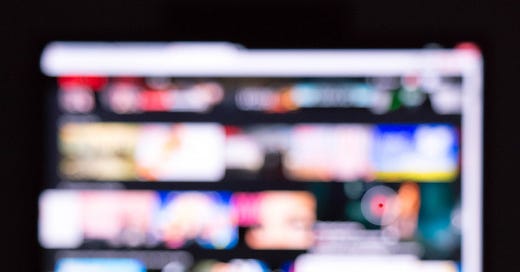Welcome to Worldwise, a newsletter to help discerning readers get truly global insight where current affairs meet humanity.
If you’re new to this space, sign up below to get these posts straight to your inbox.
Thank you so much for your loyal readership and all the kind feedback that came my way over the months. As you know this is an independent newsletter, and all posts have been free of charge since the start of this momentous year—but solid journalism isn’t easy or cheap. Each week I devote an average of 15 hours to research, curate and put together the analysis and opportunities that come your way.
If you find these posts useful, consider a contribution for the cost of a cup of coffee—or spiced chai, or why not, something more potent. Thank you for helping to keep the project going!

Photo by Pinho . on Unsplash
The Worldwise View
When the newsletter migrated onto this platform in June with a mini revamp and a new name, I made a promise.
It was at the end of this introductory post:
“I’ll soon share some takeaway messages from media monitoring in those first months of the pandemic.”
Not as soon as I hoped, but here goes—the first of three observations that emerged in the course of the year.
#1—This vast media landscape sets traps
It was mid-January when the initial reports of Covid-19 came in as news of a 'mysterious pneumonia' from China, included in my second mailout as a developing story.
After that, it felt like the modest task I’d set myself exploded into mission impossible. The flow of information turned into an avalanche.
Each week’s non-exhaustive list of media reports took in dozens of articles—that’s in mainstream and science press only, and even before the virus went global.
I suddenly found myself with a daunting task. And I couldn’t bring myself to turn away from it.
But this isn’t just about how this newsletter evolved. It matters because it’s a microcosm of what’s going on ‘out there’. The sheer volume of information available online gives readers a vast choice of what to read, and believe. And that choice sets up a trap.
I’d be surprised if you haven’t been overwhelmed by the information constantly vying for our attention. Well, research suggests we may be reaching a limit in our capacity to process it all.
"A growing body of research highlights the strain on our ability to read, understand, process, and take action on the flood of news with which we’re confronted,” writes Eric Ravenscraft in this report for Medium OneZero.
Here’s the problem with that information expansion: perhaps paradoxically, it also limits our view. Our time is finite. Selective consumption is then inevitable, and that selection feeds off—and reinforces—pre-existing biases.
Ravenscraft’s piece cites more research to touch on how this matters for our battles against misinformation:
“Give someone enough time to process what they’re reading, and they’re more likely to believe the truth, even if it goes against their political beliefs.”
Time and information volume matter for our capacity to get at some notion of truth. Yet, much of the discourse around misinformation focuses on the quality of that information, and on ‘policing’ what’s considered fake or untrue.
I questioned this approach with an op-ed in Undark magazine back in March. This post probably counts as an add-on to that questioning (which actually started with this piece in January 2017).
What the monitoring attempts of the past months tell me is that the media landscape is so vast and varied that the information ecosystems it creates can harbour different versions of reality.
This isn’t to say there’s no point to debunks, or that all misinformation is created equal. That ‘infodemic’ is now part of our lexicon, in journalism at least, is a good thing—naming the problem is important. But for me, policing isn’t the solution.
Stay tuned for take-away #2 next week 🌍
A final note from the week’s soundtrack
Worldwise is written by Anita Makri
Questions, thoughts, or something I missed? Hit reply or leave a comment below.
Enjoying it? Let me know by tapping the little heart button, share to spread the word, or invite a friend to sign up.
Was this email forwarded to you? Learn more and subscribe here.



